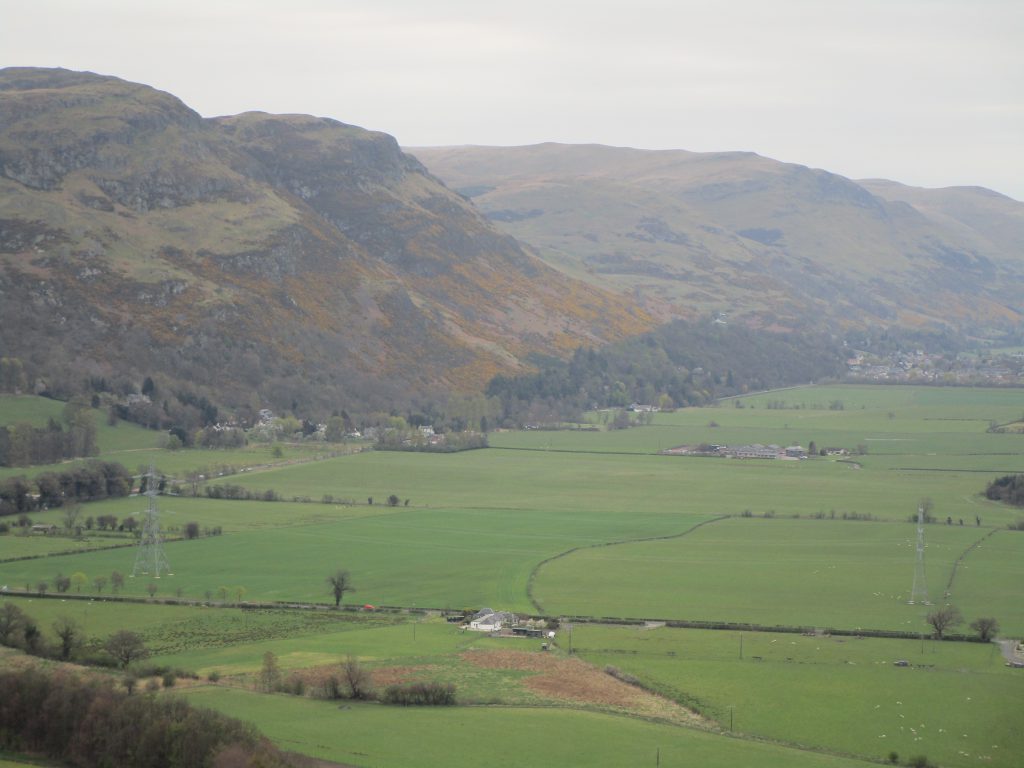Author: Prof. Derek Hutcheson, KS Vice Dean for Doctoral Education

Again rejoicing Nature sees
Robert Burns (1759-96)
Her robe assume its vernal hues:
Her leafy locks wave in the breeze,
All freshly steep’d in morning dews.
As the words of Scotland’s national bard remind us, spring has sprung – and it is time to update you on what is happening with the faculty’s doctoral studies.
As you will almost certainly have noticed, the external evaluation of doctoral studies is now in full swing. Our faculty is the first to be evaluated in the university’s 2021-25 external evaluation cycle. Four of our five subjects (IMER, Interaction Design, Media and Communication Studies, and Urban Studies) are currently under review. We have been fortunate in attracting the engagement of several of the Nordic states’ leading academic experts as external evaluators (joined by an internal professorial evaluator from another faculty, and a doctoral student representative). The committee, headed by Dr Eva Brodin of Lund University, will visit the university next month for a site visit (on 17-18 May).
Shortly before Easter, we submitted the self-evaluation reports. These were the result of discussions and consultations held across all three departments over the last half-year, and they will form the basis for next month’s site visit. We are immensely grateful to the advisory committees of supervisors – and in particular, to the doctoral studies co-ordinators in each department (Professors Maja Povrzanović Frykman, Pille Pruulmann-Vengerfeldt and Per-Markku Ristilammi) – for their intense engagement with this process.
We have made a great deal of progress in developing doctoral studies since the change to university status in 2018. But it is not just the thoughts written down in the self-evaluation documents (all 39,000 words of them!) that are important in this respect. The process is designed to be (and already has been) quality-improving, allowing us to reflect on what we do well, and what can be done better. After the site visit has taken place, we will receive a report from the evaluation committee with recommendations. Thereafter, we should present a follow-up plan to the university’s Advisory Committee on Doctoral Education (KFU) in the next academic session. So there remains much to do after the formal external part of the evaluation is completed. But first, we look forward to the evaluation committee’s visit in May with anticipation.
The evaluation is not the only item on the agenda. Despite strenuous efforts to mitigate its effect, the pandemic has hit many doctoral students hard. Dealing with the pandemic’s impact has been a major focus of our activity this year. So far, 14 doctoral students in KS – nearly half of the current doctoral students who were registered at the start of the pandemic (and by far the highest proportion of any faculty in the university) – have received extra time in respect of delays caused directly by the Covid-19. Formal extension decisions by the heads of department have been informed by a cross-departmental committee. The committee has discussed each application individually, and its recommendations have been focused on ensuring equal treatment of doctoral students’ applications regardless of subject. There will be one further round of applications in August 2022. On the positive side, since most restrictions have finally been removed, it has been pleasing to see more and more people returning to campus this semester. Several doctoral students have finally managed to embark upon much-delayed fieldwork.
We continue to develop our support structures for doctoral students and supervisors. We are aware of the need for career and pedagogical support to doctoral students, and will soon be announcing a call for expressions of interest in a hands-on teaching programme to be held in 2022-23. We instituted a new regular supervisor training seminar series this session, at the request of the departmental advisory committees of supervisors. The last such seminar of the academic year – on creativity in doctoral education – will take place on Tuesday, 26 April, and we hope for a good turnout. Participation in these seminars should be seen as a key part of supervisors’ competence development, as we seek to build excellence in doctoral education.
It is pleasing to see our doctoral student numbers expand on the basis of new externally-funded positions. We welcome two new doctoral students who started on 1 February: Jessica Haynie-Lavelle and Dennis Munetsi (both studying for PhDs in Global Politics). Their positions are linked to an all-Swedish graduate research school primarily funded by Wallenberg (WASP-AI) and co-financed by the university, the Malmö co-ordinator of which is Dr Michael Strange (GPS). Congratulations are also due to Dr Kristian Steiner (GPS), who is part of a Horizon Europe project of almost €2.7 million for a creating a doctoral network, VORTEX (Coping with Varieties of Radicalization into Terrorism and Extremism). It is a four-year project that will employ 10 PhD students across seven countries, with GPS receiving funding for 2 PhD students. It is pleasing to see efforts to build up and link into graduate schools beginning to bear fruit – especially in such a competitive field.
